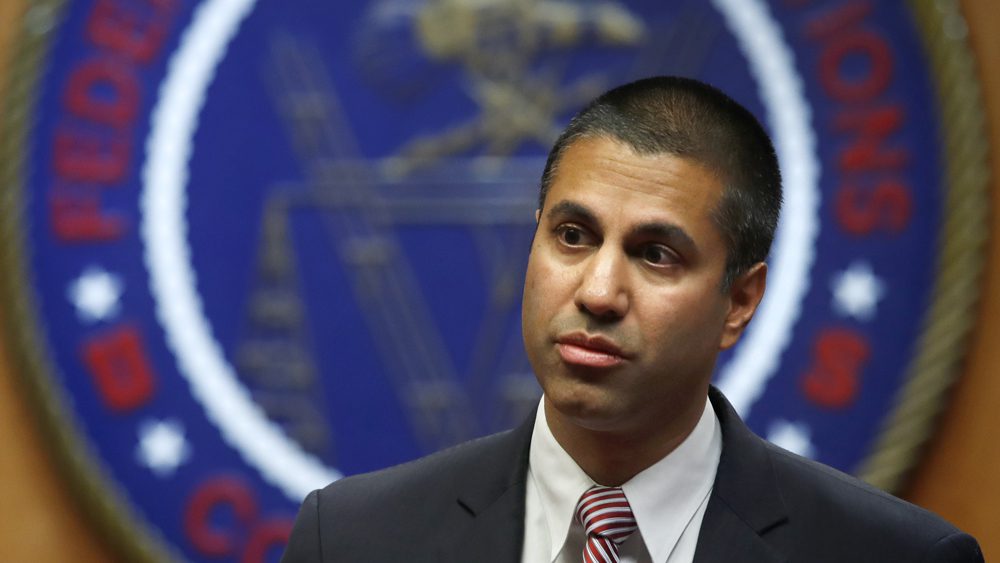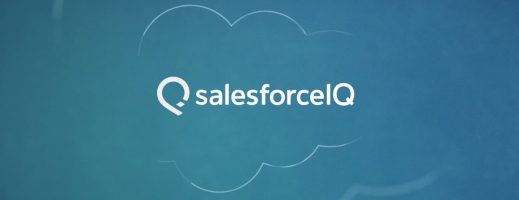Top MBA Recruiters: IBM

Finding a job after graduating with your MBA isn’t typically the issue. There are hundreds of industries and companies that would be happy to hire a freshly minted MBA graduate. The trouble is choosing the right company and job for you. If IBM hasn’t been on your list of top tech companies, maybe it should be.
About IBM
Headquartered in Armonk, New York—north of NYC and bordering Connecticut—IBM (International Business Machines Corporation) is a multinational technology company that operates in over 170 countries worldwide. It got its start in 1911, and since that time has manufactured leading-edge computer hardware, middleware, and software. The company also provides hosting and consulting services across the technology industry on topics ranging from mainframe computers to nanotechnology.
IBM is dedicated to a constant state of innovation, which is evidenced by its performance. In 2017, the company earned $79.1 billion in revenue and demonstrated that it’s still a cutting-edge technology company by expanding on many of its services including the IBM Cloud—who’s revenue accounted for 21 percent of total revenue. Other top products from the company include:
- z14: The world’s most powerful transaction system that encrypts data at scale, all the time.
- POWER9: POWER9 systems and software cut training times by 4x and boost AI accuracy.
- IBM Q Experience: The world’s first (and only) prototype 50-qubit system, which leads in quantum computing.
And IBM is always looking for new ways to be competitive. Last year, the company spent $5.6 billion on research and development. And in 2016, IBM filed 8,000 patents (the most of any company). It’s a company that is moving forward quickly, which can make it an exciting prospect for many MBA students. So, why should you work for IBM?
Why IBM?
Nicknamed Big Blue, the appeal of working for a company like IBM is fairly obvious. It’s one of the world’s largest employers with over 380,000 employees as of 2016, and those employees are top notch. Throughout the company’s history, employees have been awarded:
- Five Nobel Prizes
- Six Turing Awards
- Ten National Medals of Technology
- Five National Medals of Science
And some former IBM employees include Apple CEO Tim Cook, Microsoft Chairman John W. Thompson, SAP Co-Founder Hasso Plattner, and former Lenovo CEO Steve Ward.
In addition, if you choose to work for IBM, you have the opportunity to work almost anywhere in the world. The company has several main campuses across the globe including:
- Austin, Texas
- Raleigh-Durham, North Carolina
- Rochester, Minnesota
- New York City, New York
- Silicon Valley, California
- Rome, Italy
- Winchester, UK
- Johannesburg, South Africa
- Tokyo, Japan
And that’s just to name a few of IBM’s premier locations. And no matter where you land a job, you’ll be called an “IBMer” and receive a myriad of benefits including group life insurance, survivor benefits, paid vacation, and more.
In 2017, IBM was also recognized by Mogul as one of the Top 100 Innovators in Diversity & Inclusion as well as one of the Top 100 Companies for Millennial Women. And in 2015, IBM was named to Working Mother’s 100 Best Companies list for the 30th consecutive year.
Landing a Job at IBM
So, how do you land a job at IBM as a new MBA graduate? There are a few options. The first is the IBM General Management Leadership Development Program (GMLDP), which is the premier leadership development program for top MBA graduates. If you’re accepted, you’re hired into IBM on an accelerated path to leadership with opportunities across many of IBM’s areas including cloud, Watson, digital, offering management, and consulting.
And speaking of consulting, MBA graduates also have the opportunity to work as consultants in IBM Global Business Services. Within this area, MBA consultants are given a chance to combine sophisticated analytics with market-leading global solutions to provide deep industry insight and expertise alongside an actionable plan.
At any given time, there are over 5,000 job openings available in every industry and area from project management to marketing. Some available jobs for MBA graduates include:
- Strategy Consultant
- Projects Manager
- Account Executive
- Offering Manager
- Associate Partner for Tech/Data Strategy
- Digital Business Consultant
- Business Analyst
Meet an Employee
According to Nish Parekh, who leads IBM’s client and partner programming teaching businesses how to use IBM’s Watson technology, she’s living her dream. With Watson, she gets to work on the leading edge of AI technology and touch a variety of industries, which is exciting in and of itself.
“They bring in a lot of people from different parts of IBM, as well as some folks from outside IBM. Seeing the mix and all these people work together is fun. I get to learn from them,” Parekh told Fast Company. “Also, one of the greatest things about my job is the ability to stay on top of the latest and greatest technology. AI is up and coming; it’s exciting to be a part of that moment.”
The Potential Impacts of Net Neutrality on Higher Education

F.C.C. Chairman Ajit Pai’s decision last week to repeal Obama-era net neutrality regulations, which inhibited ISPs from paid prioritization and interfering with users’ online experiences, could have widespread implications beyond the speed of your Netflix stream.
A host of critics argue that the controversial new initiative essentially deregulates the Internet from a governmental vantage point and gives ISPs (internet service providers) free reign to control what you see as they see fit. That could mean offering fast lanes to the highest bidder—at the consumer’s expense, naturally—or censoring any content that might be remotely critical of, say, AT&T’s political position.
Pai believes the repeal will foster competition and ultimately benefit consumers. “Broadband providers will have more incentive to build networks, especially to underserved areas,” he told the NY Times after the F.C.C. cast its final votes on December 14. The vote split directly on party lines, with Republican commissioners winning by a count of 3-2.
After the vote was concluded, Mignon Clyburn, one of the two Democratic commissioners to vote no on the new provisions, said, “I dissent, because I am among the millions outraged. “Outraged, because the F.C.C. pulls its own teeth, abdicating responsibility to protect the nation’s broadband consumers.”

F.C.C. Chairman Ajit Pai. Photo via AP/Jacquelyn Martin
In terms of public relations, ISPs appear conflicted about which foot to lead with. According to Wired, in the months leading up to the repeal, Comcast publicly shared a net neutrality pledge and then quietly removed it once the votes were concluded, while Verizon promised not to open up fast lanes when it “already blocks mobile subscribers from accessing high-resolution video streams unless they upgrade to more expensive plans.”
It’s clear that this F.C.C. decision is a crippling blow to the utopian promise of the Internet, whose innovations were outgrowths of a level playing field. Netflix voiced disappointment last Friday, in which the company said “innovators, large and small, to oppose this misguided F.C.C. order.”
Consumer advocates are deeply concerned about the repeal’s impact on higher education, particularly in a moment where educators increasingly rely on YouTube lectures, video-chat services, and distance learning applications for their curricula.
There’s a scene in Werner Herzog’s 2016 documentary“Lo and Behold” in which he interviews Udacity founder and Stanford professor Sebastian Thrun about a robotics seminar, which was made available to the general public through open courseware technology. Two-hundred Stanford students enrolled in the class along with 160,000 students from the “open world.” Upon realizing that the highest achieving Stanford student ranked 413rd overall, Thrun remarked, “My God, for every great Stanford student, there are 412 amazingly great, even better students in the world.”
In an interview with Wired, Washington State University Vancouver’s Mike Caulfield explains, “Killing net neutrality will throw us back to the Dark Ages and the people that is likely to hurt most are actually rural populations that don’t have face-to-face access.”
In an interview with EdWeek, Consortium for School Networking Executive Director Keith Krueger explained matter-of-factly, “School systems will now face a bleak reality: reduced choices, higher prices, and fewer innovative tools.”
The introduction of “slow lanes” has the potential to impact peer-to-peer interactions like videoconferencing, as well as institution-wide adoptions of cloud-based models. Caufield explains, “Science or programming courses might require students to download large data sets that, if relegated to a slow lane, would take a prohibitive amount of time to download, or could help burn through data caps.”
There is a more pervasive worry that “education companies that rely on relatively fast delivery of content to schools could lose out to deep-pocketed vendors that can afford to pay internet service providers more for faster, higher-quality access,” according to an EdWeek article.
In a captivating Medium entry, Tressie McMillan Cottom, a sociology professor at Virginia Commonwealth University and faculty associate at the Berkman Center for Internet & Society, says that while changes to how Americans use the internet might not change right away, it will likely affect the amount of resources available to students who utilize online education.
“Online education was built, and sold to stakeholders, on the premise of affordable, accessible internet access,” Cottom writes.
“The concern is that companies tend to want to maximize profit. It isn’t hard to imagine telecom companies allowing companies who can pay for premium internet space to skew what is and is not available on the internet.”
Cottom telegraphs what she calls the “doomsday predictions”: charging escalating prices for basic internet consumption, leaving poorer, disadvantaged users with worse options. And that, Cottom explains, doesn’t even consider the potential socio-political ramifications. “For many, the end of net neutrality also means the regulation-by-capital of online spaces where minority groups shut out of traditional media, politics, and economies have thrived (albeit always at the precipice of precarity),” she says.
Other critics, such as University of Michigan professor Kentaro Toyama, in an recent interview with EdSurge, says that the issue was not the repeal vote, but the “already eroding” nature of the internet itself. “Technical systems are predominantly paid for and operated by private companies, which exert a lot of control,” he notes.
Indeed, before the vote, some of the largest ISPs were already practicing speed-throttling tactics, such as Comcast’s “unlimited” phone data plans that slow down after 20GB of use, and Verizon, which was caught earlier this year slowing down user speed.
But when it comes to higher education, Toyama is not worried. “Though there might be some marginal impact on the degree to which online courses like mine could be viewed by any given student, it is unlikely to be at a level noticeable by the average user,” he says.
The F.C.C. responded in defense of their new initiative that ISPs will have to publicly disclose any practices that block or throttle access to online resources, but Ed-tech advocates believe these so-called “transparency requirements” will simply force education officials to accept whatever terms are placed in front of them.
New Book from MIT Sloan Researchers Illuminates Cambrian Explosion in Robotics

MIT Sloan recently discussed a new book from Professors Andrew McAfee and Erik Brynjolfsson entitled Machine Platform Crowd: Harnessing Our Digital Future, which considers where “humans fit in the new world of work.”
Imperial College Hosts MBA Idea Couture Workshop

Recently, full-time MBA students at Imperial College Business School earned a special treat. They attended a unique, storytelling workshop led by Charles Andrew and Alexis Scobie of Idea Couture—a global strategic innovation and experience design firm. Focused on storytelling techniques in business, the workshop was held as part of the Design Thinking and Innovative Problem Solving core module. Continue reading…
MBA Startup: Salesforce IQ, Steve Loughlin & Adam Evans (Stanford GSB)

Can you imagine being offered $390 million dollars for anything?
While most of us will never know what that type of success feels like, Steve Loughlin and Adam Evans, are part of the minority who do. These two Stanford Graduate School of Business alumni started RelateIQ, a data-driven company that produced an intelligent email client, calendar, and work dashboard that automatically determined which salesperson at your company had the best relationship with a customer, among other things.
The Palo Alto-based company was acquired by Salesforce, a larger company many saw as a competitor of RelateIQ, for nearly $400 million dollars in 2014. Continue reading…
